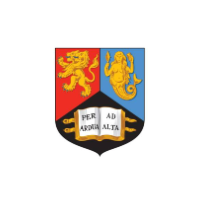项目概述 / Program Summary
The Geology and Physical Geography MSci course is a flexible degree, supported by an extensive fieldwork programme, that will give students a broad-based knowledge of the Earth sciences.
What drives the occurrence of natural hazards, and how can students forecast and respond to volcanic eruptions and earthquakes? What can past climate records teach about future climate change? How is the movement of tectonic plates reflected in the landscape? This course is for students who have these questions.
The Geology and Physical Geography MSci programme gives students the opportunity to develop independent research skills and follow their interest in the Earth sciences more fully. It provides an ideal foundation for academic research or employment as a professional geoscientist. Students may go on to work in pollution control or hydrogeology, or they could opt to become a geotechnical engineer, work for the British Geological Survey, carry out research or go into teaching. A Geology and Physical Geography degree from the University of Birmingham sets students up for a wide range of exciting careers.
Year 1 of the Geology and Physical Geography programme shares multiple modules with the Geology programme. Hence, it is possible to transfer between these courses in the first year. Students also have the option of transferring onto the Geology and Physical Geography with an International Year MSci programme, depending on performance.
This Geology and Physical Geography with an International Year MSci course gives students a broad and comprehensive training and allows them to develop their own specialist interests.
A varied fieldwork programme builds on a variety of lecture and laboratory based teaching, providing students with a range of practical scientific skills.
The first year of the course provides students with a strong foundation in geology and physical geography through a range of exciting core modules. Students will build on this in the second year, where they can start to choose from optional modules, covering topics as diverse as continental deformation, geological natural hazards, hydroclimatology and environmental protection.
The third year of the degree is spent at a partner institution overseas, where students will study from a range of optional modules. Placements are available at a large number of prestigious international institutions. In recent years, students have studied at universities in Canada, Australia, New Zealand and Denmark. This allows students to experience living and studying overseas for a year, and to potentially study some topics that may not be available in the UK. Depending on performance, it is possible to transfer onto this programme at the end of the first year.
Students will return to the University of Birmingham in the fourth year, where additional options allow them to specialise further and to develop key career skills through leading their own research project. This independent project accounts for half of the final year, and may involve links with industry. Students will develop their research plans with an academic member of staff. Several MSci students have published their research or presented it at conferences, and the MSci year provides excellent training for further research or a professional geoscience career.
Getting out of the lecture theatre and into the field is an exhilarating experience. Whether students are sampling, mapping or collecting data, the subject matter really comes alive. There's no better way to learn about the natural and the built world than by being in the great outdoors.
Fieldwork is a key element of the degree programmes, and Earth Sciences at the University of Birmingham has an outstanding reputation for providing its students with high quality field training. It offers students the chance to travel, work independently as well as in a group and learn valuable technical skills. The University of Birmingham will make the necessary arrangements to accommodate students with disabilities for field courses throughout their time at Birmingham.
The field courses help students to develop as an observational Earth scientist. In year one, semester one there is a one-week residential field course to Northern Ireland. In semester two, there is a one-week residential field course to Pembrokeshire in SW Wales. These courses will provide students with practical skills and theory spanning the breadth of Earth Sciences. All students taking Earth Sciences courses do these trips together giving students the opportunity to get to know those on the Geology, and the Palaeontology and Geology courses.
In year two, students continue to develop their core Geology as well as new Physical Geography field skills. There is a one-week residential field course to NW Scotland. This trip focuses on Quaternary Geology and geomorphology. In semester two, there is a one-week residential field course to SW England working on the world famous “Jurassic Coast" and then down in Cornwall.
The first two years of field training lead to the dissertation project, which will involve field data collection of approximately one week usually carried out between years two and three. This could be in a wide range of topics to suit students' interests, from glacial geomorphology to groundwater pollution to volcanic hazards. Students will also have the option to undertake their project with an industrial partner, leading to an industry-linked dissertation project. Students' project may focus on an aspect of resource or applied geology. Students have recently worked on projects linked with local councils, extraction companies and the British Geological Survey.
In years three (and four if students stay for an MSci), students will select one residential field course each year, giving them more control over the shape of the degree: Volcanology in Tenerife, Sedimentary Basin Analysis in SE Spain or Resource Geology in the UK.
相似项目 / Similar Programs

综合硕士
项目等级

48月
项目时长

£12006.00 英镑 / 年
生活成本

£25860.00 英镑 / 第一年
总学费

£0.00 英镑
申请费用
